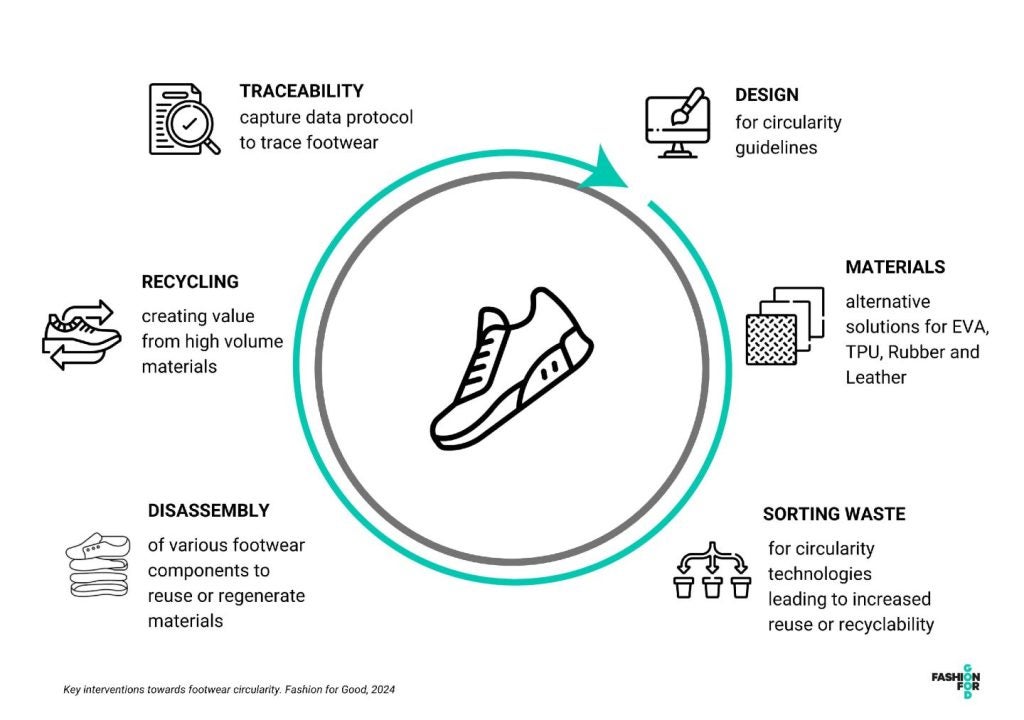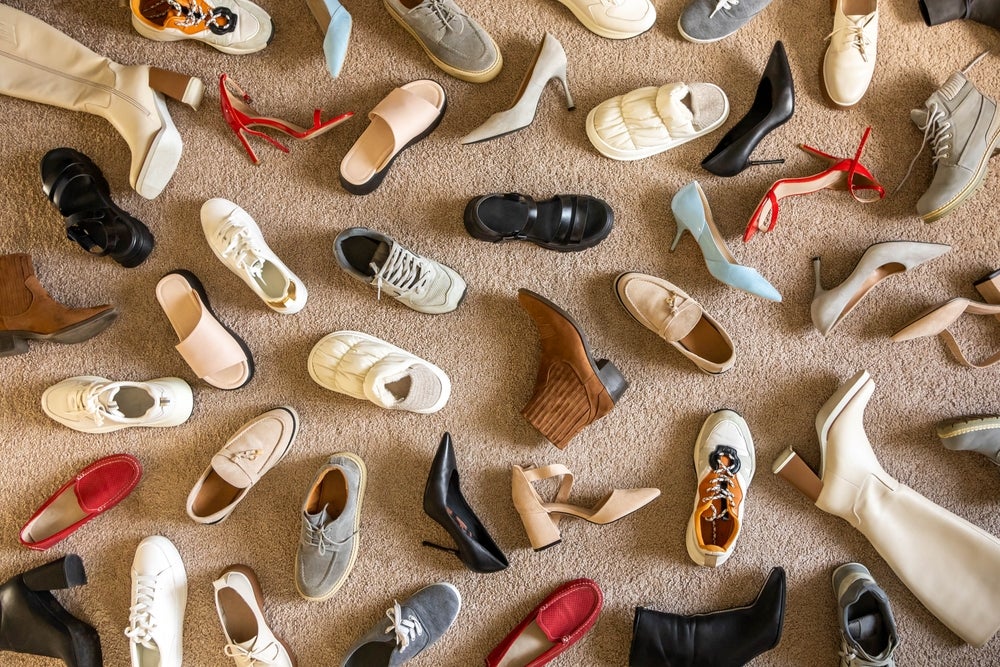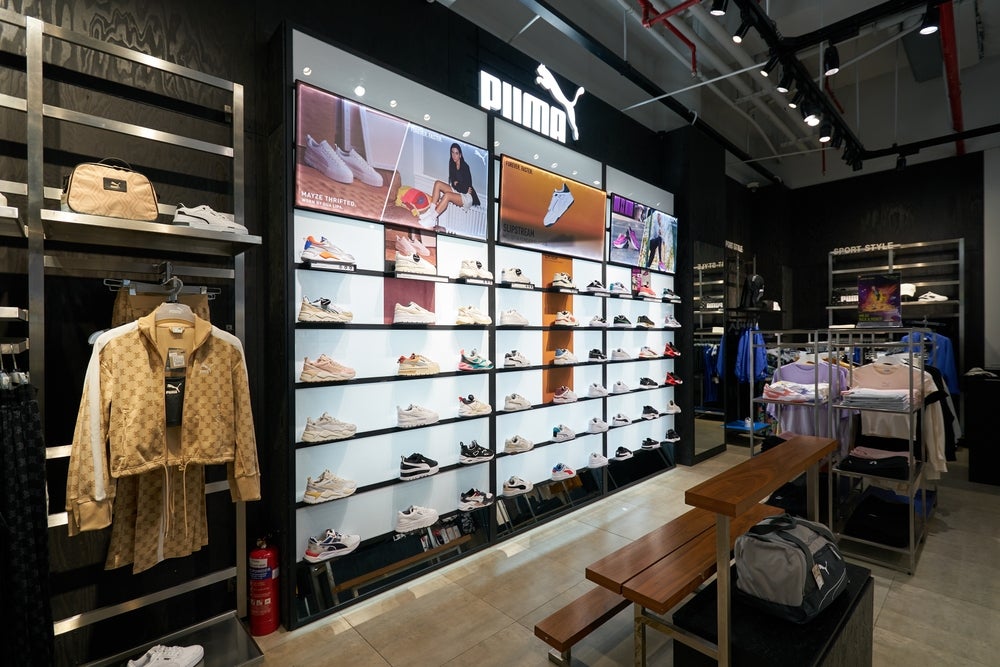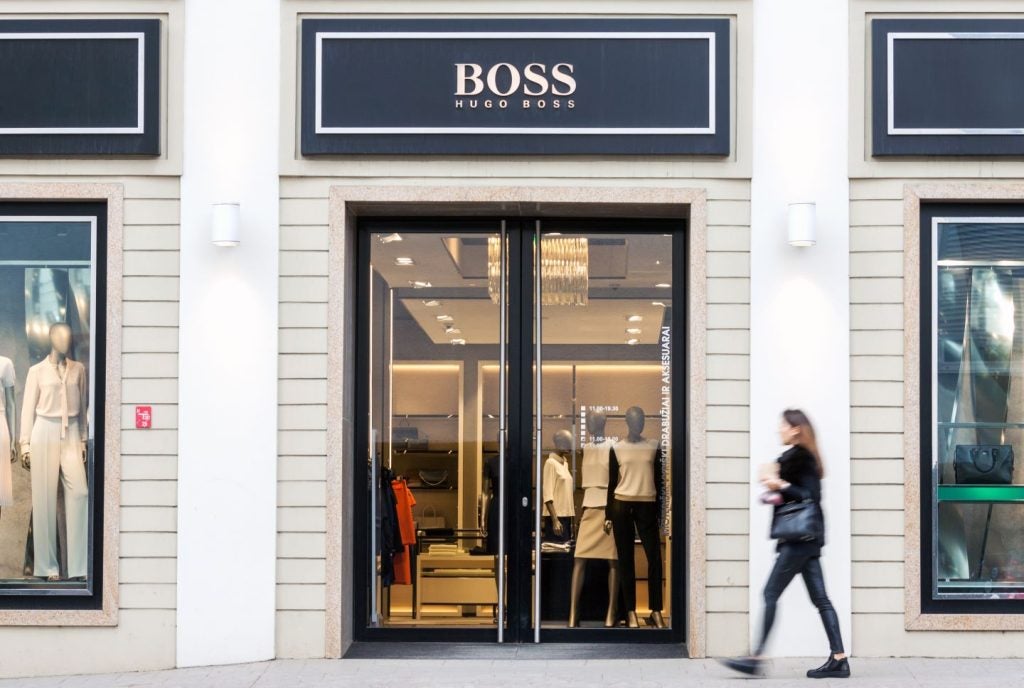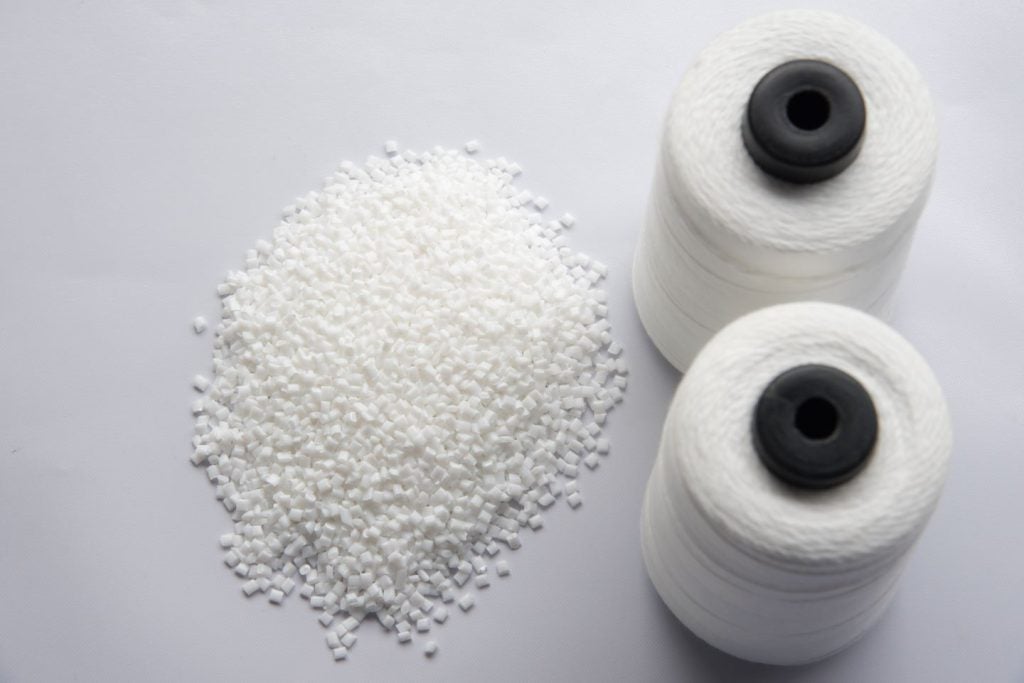The initiative from Fashion for Good aims to address the key intervention points needed to drive footwear circularity spanning four work streams across the supply chain from materials to end of use.
Fashion for Good says this builds on the organisation’s existing work leveraging their expertise in scouting, validation, and pioneering innovation and collaboration.
“Industry wide collaboration will be vital to overcome the various roadblocks we face in this space. Therefore, Fashion for Good is launching a call for action, asking all relevant innovators to apply and collaborators to join in the movement,” said Fashion for Good.
Around 23.9bn shoes are produced globally each year, they are often made using over 40 different components from a range of other materials including TPU, EVA, PU and rubber. The industry faces significant challenges due to the high complexity of shoe construction. This combined with a low collection rate, results in a vast majority of discarded footwear ending up in landfills.
Expanding on existing workstreams Fashion for Good will collaborate with its footwear-focused partners, including Adidas, Inditex, ON Running, PVH Corp., Reformation, Target, and Zalando to accelerate diversion from landfill.
To effectively address the challenges in footwear sustainability, Fashion for Good has identified the key intervention points across the shoe lifecycle and structured work into four core workstreams.
These workstreams include:
1. Design: Defining circular design in the footwear space and collectively driving guidelines to build a circular infrastructure
2. Materials: Scouting and validating sustainable alternatives for footwear materials including TPU, PU, EVA, leather, and rubber
3. End of Use: Sorting, Disassembly, & Recycling - Developing a comprehensive data set on post-consumer footwear waste flows, including (non-)rewearable fractions, volumes, construction and composition. As well as scouting and validating solutions for repair, end of use, disassembly and recycling of footwear
4. Traceability: Laying the foundation by amalgamating a footwear traceability data protocol to build traceability for evidence to substantiate sustainability claims.
“Over the past seven years, we have consistently broken norms across various segments and are now leveraging our expertise to radically reimagine footwear. By doubling down on our efforts, we aim to drive circularity and validate sustainable solutions in a segment ripe for disruption,” said Katrin Ley, managing director, Fashion for Good.
Sigrid Buehrle, SVP product operations and sustainability, Adidas, one of the project partners added: “Adidas has been a partner of Fashion for Good for over six years now. Through this partnership, we have collaborated on a number of different sustainable innovation initiatives that are benefitting the fashion industry. Now we want to build on this know-how and expand our focus into the footwear space.
Currently, there is a limited portfolio of low-impact materials which also meet the necessary performance requirements that are also scalable. We hope this initiative will help overcome some of these hurdles.”


